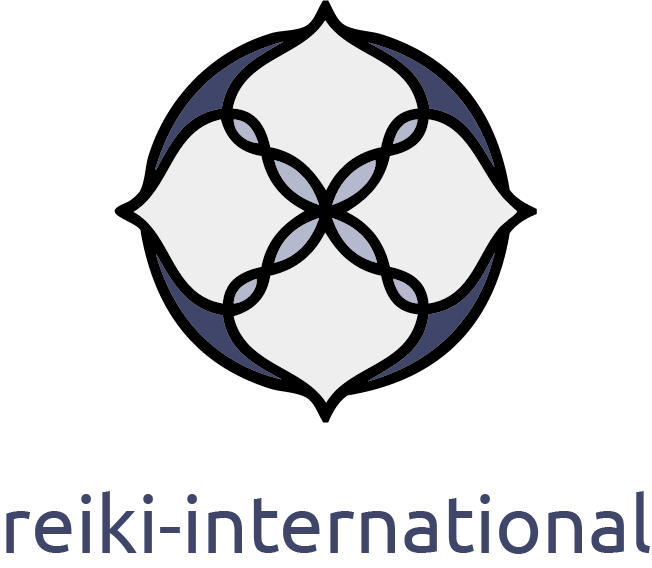How does Reiki help the dying, their relatives and the end-of-life carer? A nurse for the terminally ill talks about her manifold experiences.
One of the tasks of Reiki masters in training is to write a newsletter article. Arno Greter chose something particularly important, perhaps the most important Reiki application of all: the care of the dying. Thank you, Arno!
How did this conversation come about?
When my father died 4 years ago, he guided me into the right way one last and impressive time. I arrived at his sickbed shortly after his death. He was gifted with peacefully falling asleep. The body was still warm and a soft smile lay on his relaxed face. Moved and relieved, I took his hand and thought: “Now you have made it, dear father.” His face seemed to answer: “I am well, my son.” For a moment his long suffering was forgotten. His weak heart had simply stopped beating. He could finally leave his life and his loved ones behind. Since that day it is clear to me that death is also my destiny. Sooner or later it will catch up with all of us. The memory of my father’s gentle last smile nurtures my daily hope that my own death will one day be a fearless experience. The preparation and contemplation for this cannot begin early enough.
It was with this motivation that I sought a conversation with an experienced end-of-life carer. As a prospective Reiki teacher, I wanted to know how Reiki can help in the dying process. Priska Kunz, the nurse and palliative carer, shared in an open conversation her very personal and moving experiences and stories. Priska is a truly experienced Reiki practitioner since 1993. In the meantime she has also been initiated to the master degree.
The conversation gave me a wonderful bouquet of new ideas and suggestions which can be helpful in the last phase of life. Reiki helps the dying as well as the caregiver and the entire surrounding in many different ways. Our conversation took place on April 23, 2019.
Arno: Dear Priska, how did you become a end-of-life carer?
Priska: Through my profession as a nurse, already at a young age I came into frequent contact with people who were dying. At that time I saw many things that I felt were wrong. For example, dying people were brought out of their sickroom in their final hours. Other patients should not be exposed to someone dying. As a result, these people spent their last hours all alone in the bathroom. This moved and bothered me intensely. I found it was wrong. It can not be that people have to die in such undignified manner!
… important that you can die with dignity.
It is important to me that people can die with dignity. As a nurse it became increasingly important for me to accompany my patients, some of whom I have cared for intensively for years, even when they were dying. This is how I became more and more involved in the care of dying patients. Before I came to know Reiki, I had made really bad experiences in patients’ dying process. I witnessed death fights that frightened me. I couldn’t handle dying. With Reiki it was immediately much easier. Especially in the beginning I was hesitant with the application. I put my hands on the patients’ stomach and was not sure if I could put them also on their heart. The patients helped me intuitively. They simply took my hands and placed them where they needed Reiki most. That was very often on the heart. As soon as Reiki flows, the patients usually relax and the whole atmosphere calms down.
Arno: In your experience, do dying people wonder about what happens after death?
Priska: That varied. There were those who said that there was nothing left after death, and that it was over. As a rule, dying was easier for these people. It was most difficult for those who had the image of a punishing God. They were afraid to step before God. This was very often the case in the past. Today, of course, the image of a positive, divine power is much more widely spread. Everyone has his own ideas. There is neither a right nor a wrong. I believe you die the way you lived. Nevertheless, I am sorry to see dying people suffering because of the idea of a punishing God. I tried to alleviate these fears with Reiki and to make them more bearable.
Arno: How do I imagine a natural dying process?
Priska: I think people die when they are reconciled with themselves. The dying process has different phases and can last a very short or a very long time. It can last for years, although the desire to die has been there for a long time. It’s about helping people to let go and to alleviate their fear if there is. The dying person often enters into a wonderful serenity just before death. It seemed to me that the person was already farther away. Suddenly a high sets in, then it goes downwards and it is over. These changes can come very quickly.
Arno: How do you apply Reiki in the dying process?
Priska: I had given my patients Reiki several times a day on different body positions. Certain patients said where they wanted it. And with others, you could read it from their facial expression. The effect of Reiki is immediately noticeable. The facial features of the patients relaxed noticeably. This is immediate feedback on how good Reiki is and how much it is needed.
Arno: What exactly does Reiki do in the dying process?
Priska: Reiki always helps in a variety of ways. I would like to tell you a particularly impressive and moving story. One of my patients became weaker and weaker and her death gradually got apparent. I began to treat her with Reiki. Over time a ritual developed between us. Whenever I came to her bed, she immediately took my hand. Her son saw it one day and spontaneously asked me how I had managed to do this. His mother had always been an unapproachable woman who never let her children touch her. She had never taken us children in her arms and now, before dying, she even explicitly wishes to be physically touched. The son was very grateful. This was for me another proof of the wonderful things Reiki achieves.
I was also able to help the dying by simply providing a quiet atmosphere. Once I experienced a situation in which two daughters hurried to their dying mother and argued with each other in the sick room. When I came into the room, I immediately felt a very bad energy. I took both daughters outside and drew their attention to the fact that the quarrel caused negative energies and their mother suffered a lot. They began to cry because they did not want that. They calmed down and the mother could die very peacefully. Reiki also helped me to understand the situation intuitively and to act in the best interest of the patient.
… also for the relatives.
Arno: So Reiki not only helps the dying , but also their relatives?
Priska: Yes, that is true. In the care of the dying there is often also care of the relatives included. Once I accompanied a lady with dementia in her last phase of life. Her son had never visited her. He said he couldn’t stand it any longer with her. When she was fading, he came all the same. Restlessly and nervously he paced up and down the whole time in the sick room. At the moment of her death I saw her leave. Intuitively I took the son’s hand and laid it on hers. I felt how important it was for him. He showed great gratitude afterwards.
Arno: Was the use of Reiki accepted in the nursing home?
Priska: Everyone in the nursing home knew that I used Reiki. I was so enthusiastic about Reiki and its effects. I couldn’t keep it to myself. I handled it very transparently. It was accepted by everyone, but some had reservations or were simply sceptical, especially the attending doctor. He didn’t really want to know about it. Nevertheless, it happened again and again that medication did not work as desired in patients. Then he came and said, “Nurse Priska, do it your way. You know what I mean, don’t you?”
Arno: How does Reiki give you strength in the care of those who pass away?
Priska: Reiki especially helped me with the development of my own intuition. Today I sense much more accurately what is right and important at a given moment. My courage and strength to implement these intuitive thoughts have increased. Therefore, I would like to tell another story. I cared for a very elderly patient who was about to celebrate her 100th birthday. I felt that she did not want to celebrate this birthday with all her relatives. I noticed that she wanted a simple celebration without the whole “fuss”. So I took the initiative and organized a celebration that I thought would better meet her needs. I brought all the other patients together and all together we went to her room. In the choir we sang her “Happy Birthday” and gave her a bouquet of flowers. The patient said afterwards that this was her best birthday. One day later she died. I am convinced that Reiki strengthens my own intuition and gives me the courage to put it into practice. I had felt what this person celebrating her birthday needed. A deep connection developed between us. When she died, I saw her go. I was so grateful. It was my best dying experience. No one can take that from me. It is not an illusion.
Arno: How have you developed as an end-of-live nurse over the years?
Priska: I noticed that I can only really accompany dying people if I contemplate my own dying. That would also be my advice to all those who would like to start accompanying the dying. This contemplation has been going on for years. Reiki helped me a lot. Some things had improved quickly. Other things took longer. It’s about dealing with one’s own death. I am still learning. “The Tibetan Book of Life and Death” by Sogyal Rinpoche was very helpful. It became a kind of Bible for me and I appreciate it as a very useful reference work.
Arno: Does care for the dying end with their death?
Priska: End-of-life care goes beyond death. It is always important to me that the deceased are not brought to the cellar too soon. This makes it easier for relatives to say goodbye. Once the daughter of a deceased patient wanted her mother to be put in the coffin upstairs in the room. Finally, I was able to convince the funeral directors to do so. The relatives were allowed to be present while she was placed in the casket. It is important to me that the needs of the relatives are taken into account. In my opinion, death is not the end. And so Reiki can help even after the physical death. Especially, when death occurs abruptly due to accident or suicide, it is recommended to send Reiki to facilitate the start into a new life.
…beyond death.
Arno: What else is important to you in the context of terminal care?
Arno: What else is important to you in the context of terminal care?
Priska: It seems very important to me that you never do anything that you don’t want or that does not suit the situation. Not even if you think you should do it, but sense that somehow it is out of place. And, of course, never do anything that is not good for the dying person. Your empathy is especially important in this context. Always try to be as close as possible to the dying person and empathise with the person. Try to step into his or her shoes, so to speak. When you do that, you feel what he or she needs.
Arno: What would be a good way of dying for you?
Priska: The best I can imagine is if I received Reiki during the last hours of my life. That would simply be wonderful! But the time has not yet come. I also think it’s important to have an idea today of what is after death and by doing so get a better idea of the importance of life in the here and now. Recently, my health was not at all good. I decided to rather die than be operated. I survived without surgery. Now I am especially grateful. All I can experience now is an extra benefit. I have nothing more in my life that I absolutely must experience. It is really nice to be with my grandchildren and to see them grow up. But I am not really needed anymore. I am grateful for every day. And when the time comes, I am ready to go into the next life.
Arno: Thank you very much for the interview!
Thank you Arno!

This article was written by Arno Greter as a guest author. Through a life crisis, he found to Reiki in 2015. He works as a full-time project and team leader at a global financial services provider. He has many years of experience in systemic organizational development, change management and agile leadership. As a Reiki teacher, Arno will be giving his own Reiki seminars starting in spring 2020. Interested? Please contact directly arnogreter@bluewin.ch.
The original interview was conducted in German. This is a translation aided by DeepL.
PS There are a number of case-studies in German on our website. Use our search-function for navigation.


